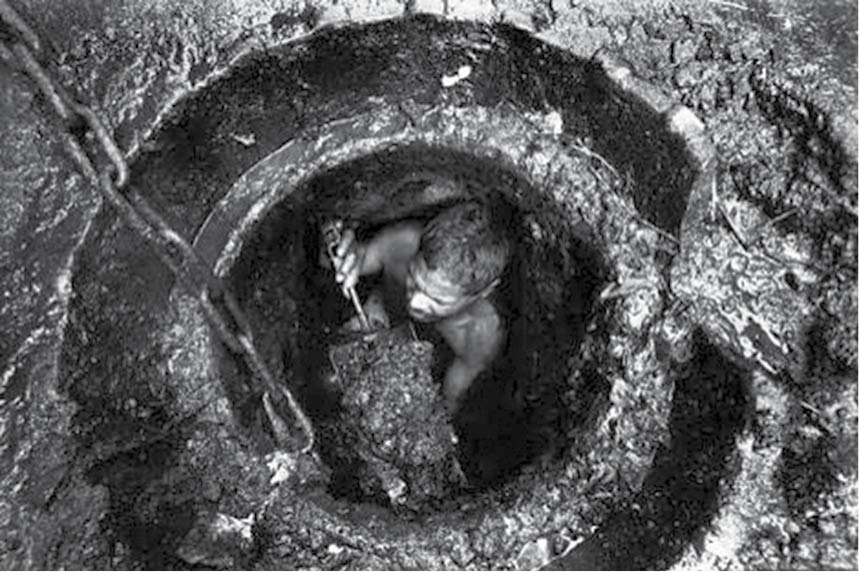When industri-alist Ratan Tata chanced on a series of pictures by photojournalist Sudharak Olwe, portraying Mumbai’s sanitation workers who spend their lives navigating the city’s waste, Tata initiated an ambitious project, Tata Trusts’ ‘Mission Garima’ (dignity) to aid the lives of 40,000 odd workers of the city who dive into sewers, sweep the streets and work in garbage dumps. In partnership with BMC, the project works towards promoting safe and humane working conditions and hopes to shake off old mind-sets and address the larger issue of how waste should be everyone’s collective concern.
Last year, Tata Trusts organised an exhibition of waste-related products and technologies directed at end-users. Over 400 workers and 20 union representatives attended it. Many senior BMC engineers were not even aware of some of the advanced products available in the market–like the small cleaning vehicles that can enter narrow, inaccessible lanes. The project team also organised a competition among workers to come up with designs for brooms and other products, based on their own ergonomic requirements. One of the biggest concerns is the inferior quality of supplies – with raincoats tearing within a few days and brooms falling apart. Many workers suffer from job-related respiratory and skin ailments and have limited access to affordable health care. Many die before they can avail of pension. The project has also launched a health plan at concessional rates to address this problem.
“These are people on the lowest rung and yet they are indispensable. They need to be treated with respect. There is also the need to change their self-image. For example, we decided to empower the children of sanitation workers by animation films with slogans like: ‘My father may not be a soldier, but he is protecting the city’,” said a spokesperson. After completing a model ward, Tata Trusts aim to give periodical support to BMC and establish linkages with government departments and other agencies. The idea is to ensure sustainability and replicate this in other wards and other cities if needed, where the BMC can act as a knowledge partner.
Courtesy: TOI
- કેવો સુંદર જવાબ! - 29 March2025
- પારસી સન્નારીઓ તેમના જાદુઈ સ્પર્શ સાથે બની સુરત મેરિયોટ અથવા લાઇન્સના રસોડાની રાણીઓ - 29 March2025
- મોબેદ મેહરાબાન ફિરોઝગરીનું અવસાન - 29 March2025
